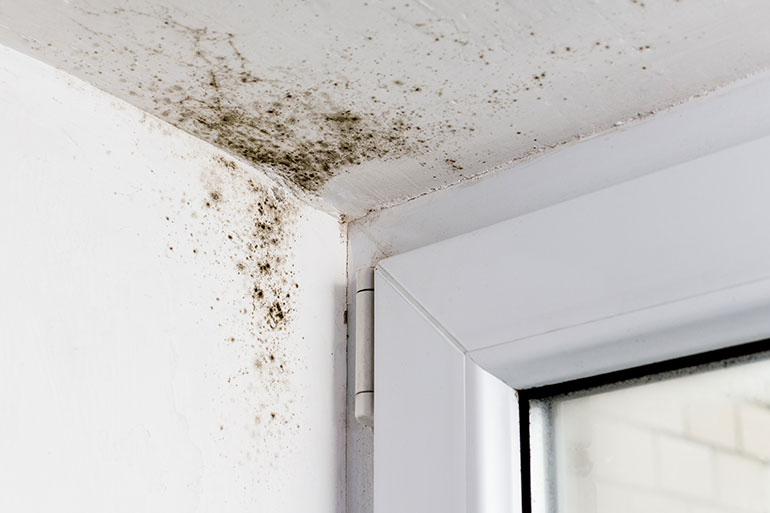
UBC research has shown that fungal growth significantly affects the physical and mechanical properties of moisture-exposed drywall.
Microbes are degrading infrastructure, compounding health implications
Microorganisms growing inside aging buildings and infrastructure are more than just a health issue, according to new research from UBC Okanagan.
The research, coming from the School of Engineering and biology department, examined the impact of fungal mould growth and associated microbes within structures on university campuses. The study focuses on the observed biodeteriorative capabilities of indoor fungi upon gypsum board material (drywall) and how it affects a building’s age and room functionality.
Assistant Professor Sepideh Pakpour says fungal growth significantly affected the physical (weight loss) and mechanical (tensile strength) properties of moisture-exposed gypsum board samples. In some cases, tensile strength and weight of some boards decreased by more than 80 per cent.
And she notes the issue of fungal growth, intensified by climate change, is two-fold.
“Increasing flooding and rainfall related to climate change is aiding fungi to grow more rapidly, causing degradation of the mechanical properties of buildings and infrastructure,” she says. “Not only are the fungi breaking down the integrity of our buildings, but their proliferation is increasing health hazards for the people who live and work in these buildings.”
The researchers also looked at other factors that can impact microbial growth including temperature, humidity, dustiness and occupancy levels—the more people, the quicker it can grow
According to the study, drywall experienced a significant effect on its mechanical properties when microbes were present. If the microbes were bolstered by moisture, the drywall’s ability to withstand breakage when under tension dropped 20 per cent. Older buildings, on average, exhibited higher concentrations and types of fungi in the air, leading to higher mould coverage and biodeterioration on the drywall.
“Our findings would suggest a critical need towards multi-criteria design and optimization of next-generation healthy buildings,” explains Pakpour. “Furthermore, we hope this study will enable engineers, architects and builders to develop optimal designs for highly microbial-resistant building materials that will decrease long-term economic losses and occupant health concerns.”
The inter-disciplinary research was overseen by UBCO Biology Professor John Klironomos, Professor Abbas Milani, director of the School of Engineering’s Materials and Manufacturing Research Institute, and Pakpour, who supervised the microbial and material degradation analyses conducted by their doctoral student Negin Kazemian.
The researchers plan on turning their attention next to the exposure levels of airborne microorganisms and possible remedies.
The latest study, partially funded by a Natural Sciences and Engineering Research Council of Canada grant, was published in PLOS One, a peer-reviewed, open-access scientific journal.
About UBC’s Okanagan campus
UBC’s Okanagan campus is an innovative hub for research and learning in the heart of British Columbia’s stunning Okanagan Valley. Ranked among the top 20 public universities in the world, UBC is home to bold thinking and discoveries that make a difference. Established in 2005, the Okanagan campus combines a globally recognized UBC education with a tight-knit and entrepreneurial community that welcomes students and faculty from around the world.
To find out more, visit: ok.ubc.ca.